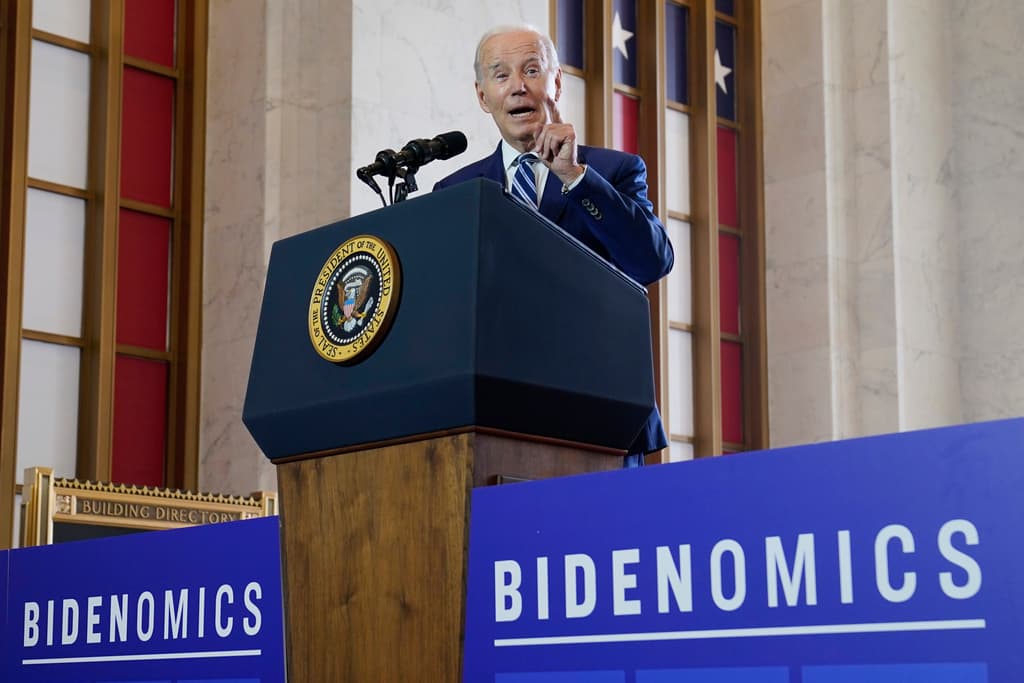Why Voters Recoil From ‘Bidenomics’
The president and his allies have far more to do with destroying jobs than creating them.

After 40 years of “trickle-down economics,” President Biden says, “Bidenomics is just another way of saying restoring the American Dream.”
Please check your email.
A verification code has been sent to
Didn't get a code? Click to resend.
To continue reading, please select:
Enter your email to read for FREE
Get 1 FREE article
Join the Sun for a PENNY A DAY
$0.01/day for 60 days
Cancel anytime
100% ad free experience
Unlimited article and commenting access
Full annual dues ($120) billed after 60 days

